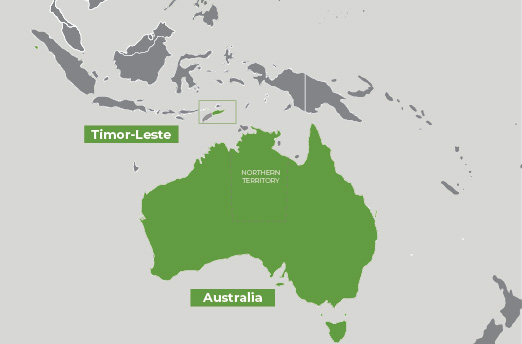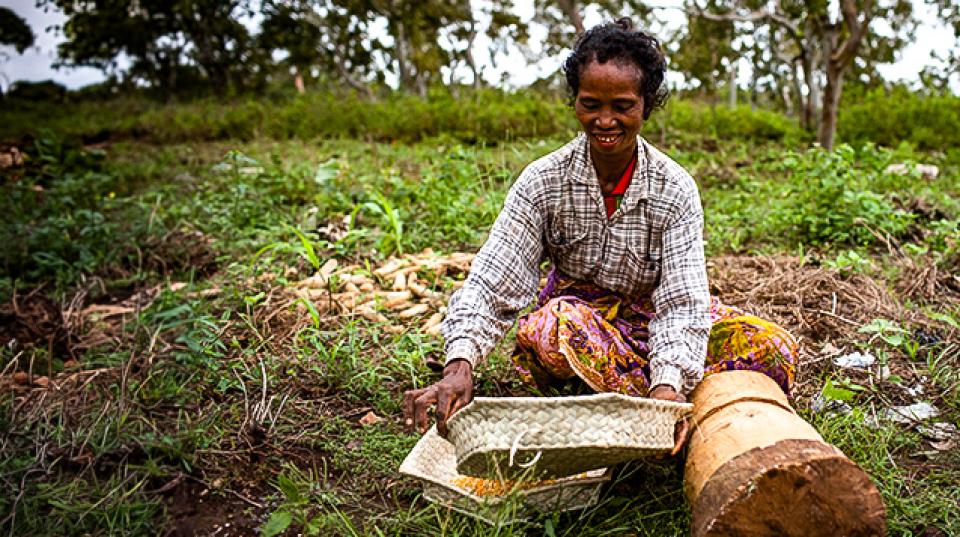Overview
This project aims to promote knowledge sharing and capacity-building between groups and individuals working on restoring and protecting Ancestral Food Systems in Timor-Leste and the Northern Territory in Australia.
The project focuses on the cultural, ecological, and knowledge systems surrounding these foods. Food and agricultural systems shaped by colonisation need transformation to achieve Sustainable Development Goals, which require broad support from all sectors of society.
In Timor-Leste, food systems have been profoundly reshaped by centuries of colonisation and occupation, leading to high levels of stunting and malnutrition. In Australia, colonisation disrupted millennia-old food systems, with Aboriginal and Torres Strait Islander communities continuing to supplement their food stocks with ancestral foods collected and foraged from the wild.
The shared history and interests between the two countries in ancestral food are significant, and there are overlapping challenges and opportunities that need to be navigated through mutual learning and exchange. Understanding the legal landscape of intellectual property for ancestral food is important in both Northern Australia and Timor-Leste, and models of negotiation and ownership experimented in Australia may be useful guides to protecting traditional knowledge.
The research and development impacts of this project are based on the principle of knowledge exchange, co-production, and mutual benefit, which has been shown to be more effective for promoting health and food systems improvements than traditional extension approaches.
The challenges of respecting intellectual and cultural property, managing sustainable harvests and commercialisation, and engaging young people are not technical solutions but rather the locus of innovation, experimentation, and learning by organisations and communities in Timor-Leste and the Northern Territory (NT).
Facilitating genuine mutual knowledge sharing between these groups will provide useful and practical lessons for addressing these challenges.
Activities and expected project outcomes
- Sharing knowledge with and between communities and organisations in the Northern Territory and communities in Timor-Leste on the use and value of wild foods.
- Highlighting issues related to bush/ traditional/ancestral food systems for selected produce.
- Using participatory mapping, seasonal calendars, and ethnobotanical tools to understand the political ecology of bush/ancestral produce.
- Detailing the value chain for the selected ancestral food and highlighting some of the issues.
- Building capacity at community and at actor levels to engage in the development of protocols for IP, access, and benefit sharing.
- Enabling communities in Northern Territory and Timor-Leste to create/implement action plans for addressing their aspirations related to ancestral food systems.
- Delivering an IP workshop and seminar—may cover issues of access and benefit-sharing, BioTrade value chains, Indigenous knowledge, Intellectual property (patents, plant variety protection) and development, biopiracy and bioprospecting ethics.
- Community wild food value chains—focused on a selection of Yams. To understand everything about the Yams from country to business. Both teams will focus on Yams, and include Konjac which is found in Timor-Leste and the NT.
- Wild food fair Darwin and Dili—activities at the end of the project to present some of the outcomes in a multi-layered public activity.




